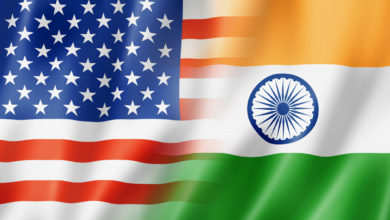World
AU Commission Chairperson: Africa’s 10 Year Plan To Focus On Building Infrastructure

African Union (AU) Commission Chairperson Moussa Faki Mahamat on Friday said Africa’s second 10-year plan will focus on expansion of infrastructure development across the continent, increase agriculture outputs and clean energy transition, reported The Anadolu Agency.
In a statement, Mahamat said the plan will revolve around three main objectives. The first objective is to ensure greater physical connectivity of the continent through the construction of roads and other communication infrastructures. The second objective is to establish the conditions for sufficient domestic agricultural production to reduce imports of foodstuffs. While the third is to build the technical capacities to make the energy transition a success.
The AU Commission chief added that mobilizing all intellectual, financial and material resources to attain the three objective is a collective challenge that calls for countries to be creative, inventive and above all bold.
Mahamat’s remarks were made in a meeting called to commemorate Sept. 9, 1999, when African heads of state and government met in Libya and decided to transform the Organization of African Unity (OAU), which was established in 1963, into the African Union (AU).
In July 2002, the decision came to life when African leaders launched the AU in an extraordinary summit in South Africa.
African countries are mostly dependent on other countries for their food requirement. The ongoing Russia-Ukraine war has had an adverse impact on the imports.
Senegalese President Macky Sall, who is the 2022 Chairman of the AU, went to Russia and Ukraine along with Mahamat to get their leaders to give safe passage to African-bound cargo ships.
Ankara, along with the UN, Moscow and Kyiv, agreed in July to facilitate the release of food and fertilizers shipments stuck in Ukraine because of the war, leading to a rise in prices.
“Africa’s food import bill has more than tripled, reaching about $35 billion a year. Much of this imported food could be produced locally, creating much needed jobs and incomes for nations’ youth and smallholder farmers,” according to the World Bank.






